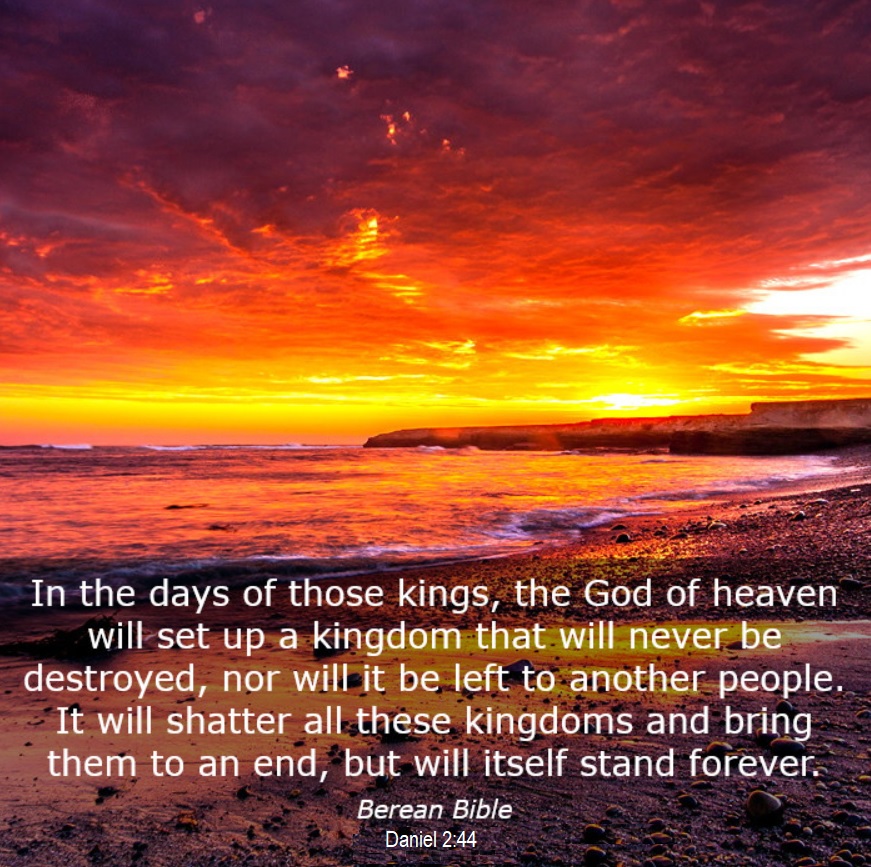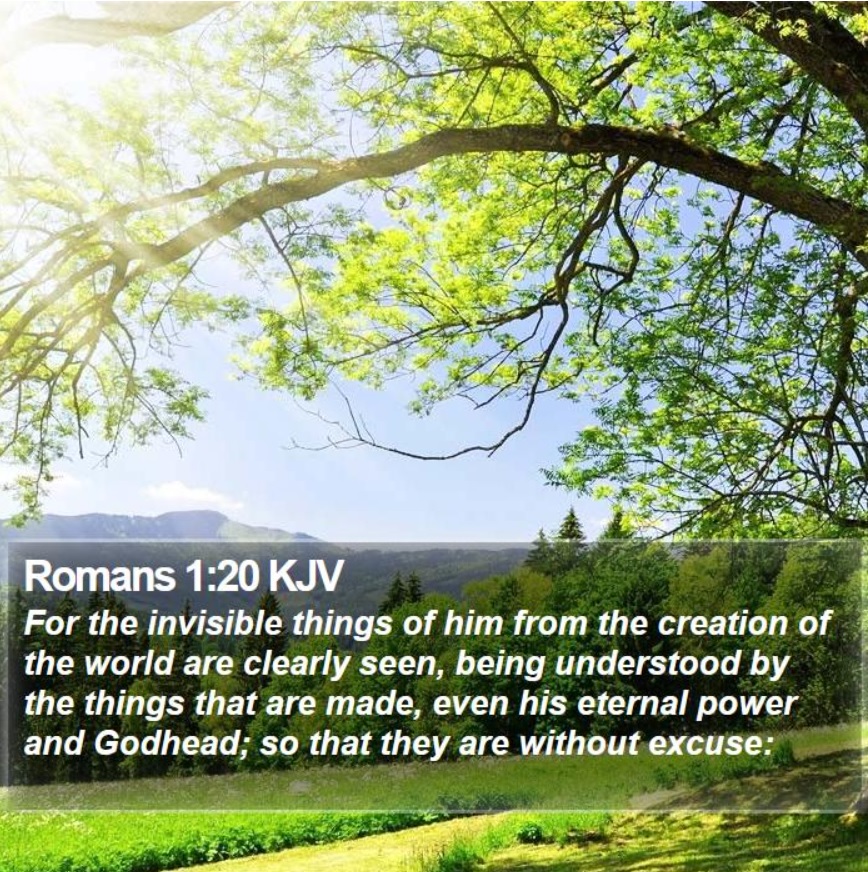“Go therefore and make disciples of all the nations…teaching them to observe all that I commanded you; and lo, I am with you always, even to the end of the age” (Matthew 28:19-20, NASB).
——————–
Contents:
1) The Fascinating Book of Daniel (Bryan Gibson)
2) Faith Is… (Doy Moyer)
——————–

-1-
The Fascinating Book of Daniel
Bryan Gibson
Daniel certainly presents some challenges to our understanding, especially the latter six chapters, but consider just a few of the fascinating details provided in this book.
How about those four young Jewish men taken into Babylonian captivity, trained to serve in the court of an infidel king, the end game being to completely immerse them in the culture of the Chaldeans? Despite numerous temptations, these young men did not forget WHO they were and WHOSE they were—they did not forget the One whom they served. We will not defile ourselves (1:8); we will not bow before any other god (3:14-18); we will not stop praying to the one true God (6:10). Yes, they served well and they served respectfully, but they did not compromise their commitment to God.
Think about the unlikelihood of an unbeliever like Nebuchadnezzar offering praise to the one true and living God, and yet that’s exactly what he does in 2:47, and again in 4:34-35, 37. Later, when Daniel served under Darius the Mede, this unbeliever issued a kingdom-wide edict exalting God (6:25-27). How could they NOT say such things, when they had come face to face with the wisdom and power of God! No, these men did not turn from their idols—they were not converted, but think about the potential impact these words of praise had on others, how these words helped spread the knowledge of God. How great is our God, that He could use even unbelievers to lead others to Him.
The kingdoms of men, they aren’t built to last—Babylon, Medo-Persia, Greece, and Rome—Daniel foretells the rise and/or fall of all four kingdoms. Daniel foretells, though, the rise of another kingdom, one completely different than the kingdoms of men: established in the days of the Roman Empire, a kingdom built “without hands,” established without force, and yet so powerful no force could ever destroy it (2:44-45; 7:13-14). There’s no better place to be, no more secure place, than in the kingdom of God.
Daniel also foretells the rise of certain kings within these empires, kings who would persecute God’s people, kings who would stand in opposition to God and the establishment of His kingdom. Think God will stand for that? Not on your life! “Through his cunning he shall cause deceit to prosper…shall exalt himself in his heart…destroy many in their prosperity. He shall even rise against the Prince of princes; but he shall be broken without human means” (8:25). “He shall speak pompous words against the Most High, shall persecute the saints of the Most High…but the court shall be seated, and they shall take away his dominion, to consume and destroy it forever”(7:25-26).
Of all the persons described in the Book of Daniel, the One who stands above them all, the One with whom we’re most impressed, is “God Most High.” Four times we hear the words, “The Most High rules in the kingdoms of men” (4:17, 25, 32; 5:21), a point powerfully illustrated throughout this fascinating book. But He doesn’t just rule in the kingdoms of men, He rules in the lives of His servants, too! Just ask Daniel, Shadrach, Meshach, and Abed-Nego—they can testify that God rules over all for the benefit and care of His people.
— Via Plain Words from God’s Word, October 3, 2024
——————–

-2-
Faith Is…
Doy Moyer
“Now faith is the assurance of things hoped for, the conviction of things not seen” (Hebrews 11:1, NASU).
The term used for assurance is also translated as substance or confidence, indicating that which provides the foundation for trust. The term for conviction is sometimes translated as evidence, indicating the proof or reality of something.
Such is the nature of faith. Faith stands under our hope, gives us the assurance and confidence that our hope is worthwhile. Faith is also our evidence of the reality of that which we cannot see. Paul said, “hope does not disappoint” (Rom 5:5), even though “hope that is seen is not hope” (Rom 8:24). Faith assures us that our faith is not in vain in the Lord (1 Cor. 15:58).
In truth, we don’t yet see that for which we hope (ultimately, heaven), but our faith assures us that the hope is real. In the context of this treatise to the Hebrews, this idea makes perfect sense. They were beginning to waver, wondering if it was worthwhile to stay in Christ. They were tempted to go back to their old ways, perhaps thinking that those ways were better somehow because the old ways weren’t so much accompanied by persecution. The writer has been making the case all along that they needed to remain faithful, for what we have in Christ is far superior to anything they could go back to or could ever have again. Their hope in Christ was waning because their faith was uncertain. That direct connection between faith and hope is vital to understanding our relationship to Christ. If our hope isn’t what it ought to be, we need to check our faith.
How can we be sure that what we hope for will come to fruition? Again, this is where faith steps in. Many might object that faith itself is without proof. Faith is often seen by the unbelieving world as blind, gullible, and irrational. How can faith be the assurance of anything, if faith itself is under suspicion? While this issue is not directly the topic of Hebrews, it is something that bothers people from time to time, and that in itself can shake a person’s hope.
Such views of faith are missing the point about the nature of faith. There is nothing in the Bible to suggest that faith is some unreasonably blind and gullible concept, believing things in spite of or contrary to evidence. To borrow a phrase, may it never be! Faith is a measured step we take based upon the evidence provided by God Himself. This evidence comes in many forms, including creation (Psalm 19) and the historical testimony to Jesus Christ, the resurrection evidence being the most significant (John 20:29-31; 1 Cor. 15:1-4). When Abraham followed God, he did it by faith even when he didn’t know exactly where he was going; nevertheless he still had good reason to trust that God knew what He was doing.
The Hebrews had plenty of reason to put their faith in God. Even though they had not yet witnessed the final outcome of their faith, they could trust that their allegiance to Jesus would not go unrewarded. For them, the Hebrew Scriptures should have been plenty of proof that God is faithful and would carry out His promises. Then, if those same Scriptures were fulfilled in Jesus Christ, then how could they abandon Christ to go back to something inferior? The evidence was available to them; they just needed to follow that path.
The 11th chapter of Hebrews is filled with examples of what faith can do. The patriarchs “died in faith,” not having seen the fulfillment of all the promises. Even so, they were convicted that God is and that God rewards those who diligently seek Him (vs. 6). These men “confessed that they were strangers and exiles on the earth,” making it clear that they were “seeking a country of their own.” This country they were seeking was a heavenly one, with a heavenly city prepared for them by God (vv. 13-16). If they could have such faith before the coming of Jesus, why would it be such a stretch for us to have such faith after the coming of Jesus? We have the evidence of Jesus Himself! Dare we exercise less faith than they, who could only hope for the fulfillment of that seed promise in Christ?
Let’s not fall into the trap of thinking that all our hope is tied up in this earth. We, too, are seeking a country not of this world. With our faith securely in place, our hope becomes that much more real. For the patriarchs, God was not ashamed to be called their God. Will He be ashamed of us? Or will we, as with those of old, find approval through our faith (vs. 39)?
“For consider Him who has endured such hostility by sinners against Himself, so that you will not grow weary and lose heart” (Heb. 12:3).
— Via Bulletin Articles from the Vestavia church of Christ, February 14, 2016
——————–
The Steps That Lead to Eternal Salvation
1) Hear the gospel — for that is how faith comes (Rom. 10:17; John 20:30-31).
2) Believe in the deity of Jesus Christ, the Son of God (John 8:24; John 3:18).
3) Repent of sins. For every accountable person has sinned (Romans 3:23; Romans 3:10), which causes one to be spiritually dead (Ephesians 2:1) and separated from God (Isaiah 59:1-2; Romans 6:23). Therefore, repentance of sin is necessary (Luke 13:5; Acts 17:30). For whether the sin seems great or small, there will still be the same penalty for either (Matt. 12:36-37; 2 Cor. 5:10) — and even for a lie (Rev. 21:8).
4) Confess faith in Christ (Rom. 10:9-10; Acts 8:36-38).
5) Be baptized in water for the remission of sins (Mark 16:16; Acts 2:38; 22:16; 1 Pet. 3:21). This is the final step that puts one into Christ (Gal. 3:26-27). For from that baptism, one is then raised as a new creature (2 Cor. 5:17), having all sins forgiven and beginning a new life as a Christian (Rom. 6:3-4). For the one being baptized does so “through faith in the working of God” (Col. 2:12). In other words, believing that God will keep His word and forgive after one submits to these necessary steps. And now as a Christian, we then need to…
6) Continue in the faith by living for the Lord; for, if not, salvation can be lost (Matt. 24:13; Heb. 10:36-39; Rev. 2:10; 2 Pet. 2:20-22).
——————–
Tebeau Street
CHURCH OF CHRIST
1402 Tebeau Street, Waycross, GA 31501
Sunday: 9 a.m. Bible Classes and 10 a.m. Worship Service
Wednesday (all but the first): 7 p.m. Bible Classes
First Wednesday of the month: 7 p.m. Congregational Song Service (about 45 minutes of singing, followed by a short talk)
evangelist/editor: Tom Edwards (912) 281-9917
Tom@ThomasTEdwards.com
https://thomastedwards.com/go/all.htm (This is a link to the older version of the Gospel Observer website, but with bulletins going back to March 4, 1990.)